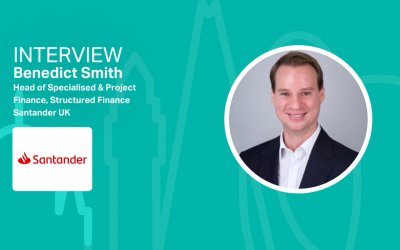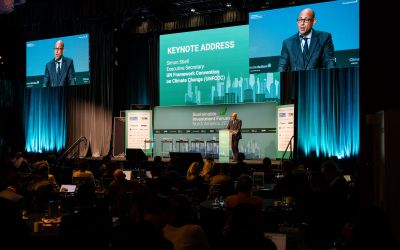Jeroen Bos on the importance of using responsible investing to improve financial returns
Ahead of the Virtual Edition of the Sustainable Investment Forum Europe 2020, a 4-Part Digital Event Series starting from 8 September, we caught up with Jeroen Bos, Head of Specialised Equity & Responsible Investing at NN Investment Partners, to discuss whether responsible investing can improve financial returns.

Ahead of the Virtual Edition of the Sustainable Investment Forum Europe 2020, a 4-Part Digital Event Series starting from 8 September, we caught up with Jeroen Bos, Head of Specialised Equity & Responsible Investing at NN Investment Partners, to discuss whether responsible investing can improve financial returns.
Q. Can responsible investing also improve financial returns?
At NN IP we certainly believe so. It makes perfect sense that taking material ESG aspects into account – factors that impact the long-term sustainability of a company’s business model and hence its future profitability – should lead to a more complete and better corporate assessment. Logically this should then also result in better quality investment decisions. So in our view integrating ESG criteria and investing in a responsible way is simply a more complete approach to investing. We have also carried out academic research together with the University of Maastricht that reveals that companies that are improving their ESG performance and that show responsible behavior actually perform better financially as well, something that improves the risk-reward profile of investment portfolios. The market volatility during March and April this year also clearly showed the strength of Sustainable Investing as these were the best performing equity funds around, pretty impressive when realizing these funds performed strongly in 2019 as well. The investment focus on companies with resilient operations and a long-term sustainable business models clearly paid off.
Q. Are the UN Sustainable Development Goals (SDGs) s compatible with ESG and investing returns?
I would view the SDGs and ESG integration as complementary to each other. ESG integration is an integral part of the investment process that adds environmental, social and governance angles to the overall investment analysis and makes the process more complete. The UN SDGs add an additional element. They incorporate a focus on those investments that contribute to the goals through their products or their operations. So at NN IP we integrate ESG criteria across our full equity range as a standard practice. The additional SDG and impact focus is currently integrated in a subset of our equity range. For us the focus on the SDGs is where attractive financial returns and a positive impact on society (through the SDGs) go hand in hand.
Q. How can investors measure the true societal impact of investing?
When discussing impact it is key to measure the impact we have as accurately as we can. This can of course be done in a variety of ways. One can look at the carbon emissions of the investments in a portfolio, the water intensity or waste output and also compare these to a benchmark. But one can also look at other statistics such as job creation, innovation power and gender diversity, for example. So there are a variety of ways to measure the impact of investments. Where we as an industry need to improve is to create better reporting standards for these different types of impact so they can be managed and compared more effectively. So we can see how a company’s impact changes over time and how one firm compares with another.
Q. How can a portfolio meet the UN SDGs?
The SDGs are a great tool to help investors focus on the different types of positive impact they can make with their investments. By investing in and therefore supporting companies whose products, services or operations contribute to the SDGs, an investor can contribute to society’s quest to achieve the SDGs in the years to come.
Q. How can a portfolio actively prevent global warming and lower CO2 emissions?
In our view, there are several ways that investors can help prevent global warming by reducing society’s CO2 emissions. Firstly, they can invest in firms that support the energy transition through new and innovative solutions, for example, in the renewable energy space. Secondly, investors can invest in companies that provide solutions that reduce CO2 emissions and energy usage in the production process. In addition to investments, engagement with companies is also a useful way to encourage companies to adapt their operations to make them less carbon-intensive. So there are several ways that investors can help society make the transition to a more sustainable and lower carbon-intensive future.
Jeroen Bos will be sharing further insights at the Virtual Edition of the Sustainable Investment Forum Europe 2020, organised in Partnership with UNEP-FI. The 4-Part Digital Event Series will take place on the 8th, 11th, 15th and 22nd September 2020. Secure your place today by registering for free here.






